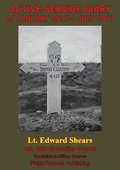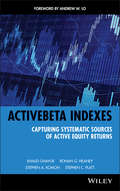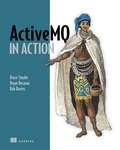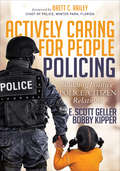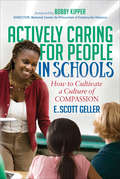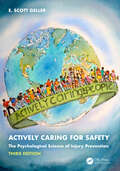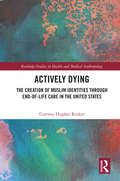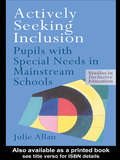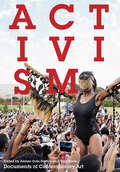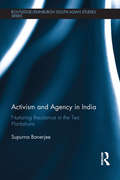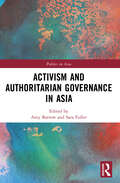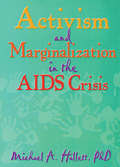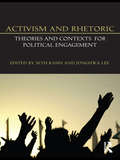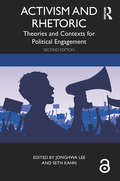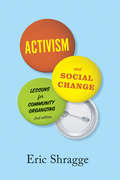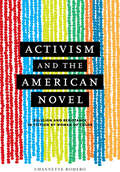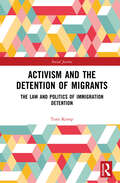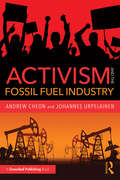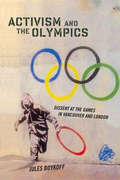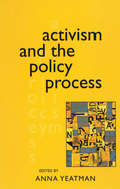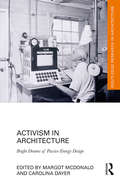- Table View
- List View
Active-Service Diary - 21 January 1917-1 July 1917
by Lieutenant Edward Hornby ShearsThe short, but poignant and action filled diary of a public school officer who fought with the Irish Guards in the Ypres Salient.EDWARD HORNBY SHEARS was born in Liverpool On December 4, 1890. His preparatory school was The Leas, Hoylake (1900-1904). In July, 1904, he obtained a Foundation Scholarship at Bradfield, and in December 1908 a History Exhibition at Trinity College, Oxford. He went up to Oxford in October, 1909, and obtained a 'second' in 'Mods' in 1910, and a 'first' in 'Greats' in 1913. In September, 1913, he passed into the Home Civil Service, and was appointed to the Secretaries' Department of the General Post Office. A year later (October, 1914) he became Principal Private Secretary to the Postmaster-General, Mr. (now Sir Charles) Hobhouse. He had been refused official permission to join the army at the outbreak of the War, but he received it in May, 1915, and obtained a commission in the 3/4th Queen's (Royal West Surrey) Regiment. A few months later he was promoted to lieutenant. After training for a year and a half in England, and having no apparent prospect of being sent to the front, he obtained a transfer to the Irish Guards, in which he received his commission as ensign in November, 1916. In January, 1917, he joined the 1st Battalion in France, where he was shortly promoted to lieutenant (dating from October 18, 1916). He was killed in action at Boesinghe on July 4, 1917, and on the following day he was buried at Canada Farm, Elverdinghe, near Ypres.
Active: Workouts that work for you
by Holly Davidson'Holly makes exercise seem effortless and fun.' - Sadie FrostWe all want to feel fit, healthy and strong, but with today's fast-paced lifestyles it can be hard to find the time or motivation to work out. Holly Davidson is a top personal trainer who has used her years of experience to devise an exercise programme that is varied, flexible, fun and easy to fit into your day to day life.Holly is used to working with clients who have jam-packed schedules, so she has dozens of clever tips that will help fit your workout into your regular routine. This book will guide you to maximise the experience of training anywhere, and to use these tools and techniques to craft a regime that is not boring, repetitive, monotonous, but instead varied and diverse.Holly's sustainable, holistic approach is based on balance and setting realistic and achievable goals. It's not about crash dieting or scrambling to get a bikini body - it's about integrating fitness into your lifestyle and making workouts work for you.With her encouraging tone and easy-to-follow exercise routines, Holly is with you every step of the way. Feel happy. Feel healthy. Feel strong. And get active!
Active: Workouts that work for you
by Holly DavidsonWe all want to feel fit, healthy and strong, but with today's fast-paced lifestyles it can be hard to find the time or motivation to exercise. What if there was a way to find the fitness that's right for you - workouts that will fit into the time and space you have available?Holly Davidson is a top personal trainer who works according to the fundamental belief that fitness is within each one of us, and we can find it wherever we are. She has used her years of experience to devise an exercise programme that is varied, flexible and fun. She is used to working with clients who have jam-packed schedules, so she has dozens of clever tips that will help fit your workout into your regular routine. This book will guide you to maximise the experience of training anywhere, and to use these tools and techniques to craft a regime that is not boring, repetitive, monotonous, but instead varied and diverse.Holly's sustainable, holistic approach is based on balance and setting realistic and achievable goals. It's not about crash dieting or scrambling to get a bikini body - it's about integrating fitness into your lifestyle and making workouts work for you.With her encouraging tone and easy-to-follow exercise routines, Holly is with you every step of the way. Feel happy. Feel healthy. Feel strong. And get active!
ActiveBeta Indexes
by Andrew W. Lo Ronan G. Heaney Stephen A. Komon Stephen C. Platt Khalid GhayurAn informative guide offering new and innovative ways to think about active management and investingActiveBeta Indexes presents exciting new research that shows how above-market returns can be achieved in a low-cost, transparent, and efficient fashion. Active Betas reflect fundamental investment principles that have long been the foundation of active equity returns, but are commonly masqueraded as investment skill, or alpha. This groundbreaking book lifts the veil to uncover the common sources of active returns and reveals their beta-like properties.Developed by leading investment practitioners at Westpeak Global Advisors, ActiveBeta Indexes introduces Active Beta sources and explains how the behavior of short- and long-term earnings growth gives rise to systematic sources of active equity returns.Details a new index framework and research findings that could change the face of active portfolio managementPresents patent-pending innovations for constructing style indexes and informationally-efficient active portfoliosExplores the historical performance of ActiveBeta IndexesWealth advisers, consultants, pensions and endowments, and other institutional investors will find the intellectual honesty of ActiveBeta Indexes a refreshing perspective on the active management industry. They will also find it a useful guide to a more strategic allocation of their risk and management fee budgets - a growing necessity in these challenging times.
ActiveMQ in Action
by Rob Davies Dejan Bosanac Bruce SnyderApplications in enterprises need to communicate, most commonly done by messaging. Apache ActiveMQ is an open-source implementation of the Java Message Service (JMS), which provides messaging in Java applications.ActiveMQ in Action is a thorough, practical guide to implementing message-oriented systems using ActiveMQ and Java. Co-authored by one of the leading ActiveMQ developers, Bruce Snyder, the book starts with the anatomy of a core Java message, then moves quickly through fundamentals including data persistence, authentication and authorization. Later chapters cover advanced features such as configuration and performance tuning, illustrating each concept with a running real-world stock portfolio application.Readers will learn to integrate ActiveMQ with Apache Geronimo and JBoss, and tie into both Java and non-Java technologies including AJAX, .NET, C++, Ruby, and the Spring framework. Purchase of the print book comes with an offer of a free PDF, ePub, and Kindle eBook from Manning. Also available is all code from the book.
Actively Caring for People Policing: Building Positive Police/Citizen Relations
by E. Scott Geller Bobby KipperA revolutionary new approach to policing that puts people over punishment. Experts have struggled to define the term &“police culture.&” For most, this label means a reactive approach to keeping people safe by using punitive consequences to punish or detain the perpetrators. The result: More attention is given to the negative, reactive side of policing than a positive, proactive approach to preventing crime by cultivating an interdependent culture of residents looking out for the safety, health, and well-being of each other. In Actively Caring for People Policing, authors E. Scott Geller and Bobby Kipper show how police officers can play a critical and integral role in achieving such a community of compassion—an Actively Caring for People (AC4P) culture. With AC4P policing, consequences are used to increase the quantity and improve the quality of desired behavior. Police officers are educated about the rationale behind using more positive than negative consequences to manage behavior, and then they are trained on how to deliver positive consequences in ways that help to cultivate interpersonal trust and AC4P behavior among police officers and the citizens they serve. The result: humanistic behaviorism to enhance long-term positive relations between police officers and the citizens they serve, thereby preventing interpersonal conflict, violence, and harm.
Actively Caring for People in Schools: How to Cultivate a Culture of Compassion
by E. Scott GellerSeven research-based lessons from psychology—the science of human experience—inspire the development of an actively caring for people (AC4P) culture. The education/training purpose: to enhance long-term positive and sustainable relations between teachers, students, school administrators, and SROs, and in turn cultivate an optimal teaching/learning climate and prevent interpersonal conflict and bullying behavior. Both education and training are provided. Each research-based principle for AC4P intervention is explained and followed by questions or scenarios to facilitate group discussion. Behavioral exercises are given to practice each principle and receive supportive and corrective feedback for continuous improvement.
Actively Caring for Safety: The Psychological Science of Injury Prevention
by E. Scott GellerActively Caring for Safety: The Psychological Science of Injury Prevention outlines proactive applications of applied behavioural science and humanism (i.e., humanistic behaviourism) for improving health and safety. This text provides evidence-based principles for customizing effective processes for improving the human dynamics of safety and health in various locations—from home to the workplace, and throughout a community. World-renowned health/safety researcher, teacher, and consultant E. Scott Geller combines theory and principles in practical step-by-step procedures with behavioral science methods capable of enhancing safety awareness, reducing at-risk behavior, and facilitating ongoing participation in safety-related activities. Drawing upon his bestselling works Working Safe and The Psychology of Safety Handbook, this book presents a science-based and practical approach to improving attitudes and behavior for achieving an injury-free work environment. The text has been improved and updated throughout and includes additional material on a rationale for language to replace common safety-related words that stifle human engagement. Plus, critical safety-relevant information is provided on empathy, emotional intelligence, self-motivation, positive psychology, psychological safety, the dramatic benefits of promoting perceptions of personal choice, and critical distinctions between leadership and management for optimizing workplace safety and productivity.Written in an enjoyable, anecdotal, and engaging style, this is an essential read for any student, academic, researcher, or professional of health and safety.
Actively Dying: The Creation of Muslim Identities through End-of-Life Care in the United States (Routledge Studies in Health and Medical Anthropology)
by Cortney Hughes RinkerThis book explores the experiences of Muslims in the United States as they interact with the health care system during serious illness and end-of-life care. It shifts "actively dying" from a medical phrase used to describe patients who are expected to pass away soon or who exhibit signs of impending death, to a theoretical framework to analyze how end-of-life care, particularly within a hospital, shapes the ways that patients, families, and providers understand Islam and think of themselves as Muslim. Using the dying body as the main object of analysis, the volume shows that religious identities of Muslim patients, loved ones, and caregivers are not only created when living, but also through the physical process of dying and through death. Based on ethnographic and qualitative research carried out mainly in the Washington, D.C. region, this volume will be of interest to scholars in anthropology, sociology, public health, gerontology, and religious studies.
Actively Managing and Redirecting Projects: Executing Specific Growth Opportunities Using Discovery-Driven Planning
by Ian C. Macmillan Rita Gunther McgrathIn an emerging business, you will learn a lot from situations that reveal how close your assumptions are to what is actually unfolding. Sometimes, these situations or events occur naturally as you work on developing a business. Other times, you'll have to deliberately create a management intervention to get at the information. Either way, these events can be used as checkpoints in the discovery-driven plan to deliberately structure the systematic testing of assumptions as plans unfold. This chapter takes you through the design of a set of checkpoints to monitor, manage, and redirect the progress of the plan. This chapter is excerpted from "Discovery-Driven Growth: A Breakthrough Process to Reduce Risk and Seize Opportunity."
Actively Seeking Inclusion: Pupils with Special Needs in Mainstream Schools (Studies In Inclusive Education Ser.)
by Julie AllanFirst Published in 2004. Routledge is an imprint of Taylor & Francis, an informa company.
Activision: The 'Kelly Slater's Pro Surfer' Project
by Alan Maccormack Kerry Herman Enrico D'AngeloMike Ward, the producer in charge of developing the Kelly Slater's Pro Surfer game for Activision, must decide whether to launch the game in time for the 2002 Christmas season. Complicating his decision are the lukewarm response from consumers to TV test spots of the game and the need to fund a multimillion dollar marketing campaign. Also describes Activision's approach to game development, which was based on a green-light process adopted by the firm in 2000 to better control new game development better.
Activism (Whitechapel: Documents of Contemporary Art)
by Afonso Dias Ramos Tom SnowAn edited collection that addresses the vital intersection of contemporary art and activism in this watershed cultural moment.Activism is a critical point of contention for institutions and genealogies of contemporary art around the world. Yet artists have consistently engaged in activist discourse, lending their skills to social movements, and regularly participating in civil and social rights campaigns while also boycotting cultural institutions and exerting significant pressure on them. This timely volume, edited by Tom Snow and Afonso Ramos, addresses an extraordinary moment in debates over the institutional frameworks and networks of art including large-scale direct actions, as well as a radical rethinking of art venues and urban spaces according to racial, class, or gender-based disparities, including demonstrations against the extractive and exploitative practices of neoliberal accumulation and climate catastrophe.From ACT UP and its affiliate groups since the dawn of the AIDS crisis to the counter-spectacle and street theatrics of the so-called Arab Spring and Occupy, to ongoing protest movements such as Black Lives Matter, Rhodes Must Fall, and Decolonize This Place, activist aesthetics has proven increasingly difficult to define under traditional classifications. Resurgent campaigns for decolonial reckoning, ecological justice, gender equality, indigenous rights and antiracist pedagogies indicate that the role of activism in contemporary art practice urges a critical reassessment. One pressing question is whether contemporary art&’s most radical politics now takes place outside, against, or in spite of, conventional sites of display such as museums, biennials, and galleries.Artists surveyed include: ACT UP, Basel Abbas & Ruanne Abou-Rahme, Allora & Calzadilla, Tania Bruguera, Black Audio Film Collective, Chto Delat, Andrea Fraser, Nan Goldin, Sanja Iveković, Gulf Labor, Amar Kanwar, Leslie Labowitz, Liberate Tate, Sethembile Msezane, Zanele Muholi, Jan Nikolai Nelles & Nora Al-Badri, Decolonize This Place, Michael Rakowitz, Oliver Ressler. Writers include: Dave Beech, Judith Butler, Amílcar Cabral, Elias Canetti, Douglas Crimp, Jodi Dean, Gilles Deleuze, T.J. Demos, Nina Dubrovsky, Süreyyya Evren, Catherine Flood, Matthew Fuller, David Graeber, Gavin Grindon Félix Guattari, Brian Holmes, Carrie Lambert-Beatty, Lucy Lippard, Yates McKee, MTL Collective, Gregory Sholette, Françoise Vergès, Peter Weiss, Eyal Weizman.
Activism and Agency in India: Nurturing Resistance in the Tea Plantations (Routledge/Edinburgh South Asian Studies Series)
by Supurna BanerjeeDuring the period 2000 to 2010, tea plantations in India experienced a crisis and were at the threshold of transformation, framed by conflict and turbulence. This book is an interdisciplinary and intersectional work examining the nature of victimhood and agency among women workers on tea plantations in North Bengal, India. The author views tea plantations as social spaces, rather than only economic units of production. Focusing on the lived experiences of the workers from the perspective of their multiple identities, the author uses the everyday as the entry point for understanding the exercise of agency, the negotiation of different spaces, gender roles and norms therein, as well as acts of protest. Agency and its relation to space are seen as continuums: from their everyday, hidden forms to the more overt and spectacular; from conformity and endurance to challenge and protest. Offering an understanding of the gendered nature of space and labour, this book examines the post-crisis period by mapping the workers’ narratives about their lived experiences and struggles in the times of economic, political and social tumult in the tea plantations of northern West Bengal. It will be of interest to an interdisciplinary audience interested in Development Studies, Gender Studies, South Asian Studies, Social Activism and Labour Studies.
Activism and Authoritarian Governance in Asia (Politics in Asia)
by Amy Barrow and Sara FullerThis interdisciplinary book offers a new analysis of the concepts, spaces, and practices of activism that emerge under diverse authoritarian modes of governance in Asia. Demonstrating the limitations of existing conceptual approaches in accounting for activism in Asia, the book also offers new understandings of authoritarian governance practices and how these shape state-civil society relations. In conjunction with its tripartite theoretical framework, the book presents regional knowledge from an array of countries in Asia, with empirically rich contributions from both scholars and activists. Through in-depth case studies, the book offers new scholarly insights that highlight the ways in which activism emerges and is contested across Asia. As such, it will be of interest to students and scholars of Asian politics, law, and sociology.
Activism and Marginalization in the AIDS Crisis
by Michael A HallettActivism and Marginalization in the AIDS Crisis shows readers how the advent of HIV-disease has brought into question the utility of certain forms of “activism” as they relate to understanding and fighting the social impacts of disease. This informative and powerful book is centrally concerned about the ways in which institutionally governed social constructions of HIV/AIDS affect policy and public images of the disease more so than activist efforts. It asserts that an accounting of the power institutional structures have over the dominant social constructions of HIV disease is fundamental to adequate forms of present and future AIDS activism. Chapters in Activism and Marginalization in the AIDS Crisis demonstrate how, despite what is thought of as the “successful activism” of the past decade, the claims of the HIV-positive are still being ignored, still being marginalized, and still being administratively “handled” and exploited even as the plight of those who find themselves HIV-positive worsens. Although chapters reject the assertion that activism has been a highly effective remedy to HIV-positive voicelessness, authors do not deny that activists have been vocal, but that they continue to be ignored despite their vocality.Contributors in Activism and Marginalization in the AIDS Crisis offer numerous examples of institutional control and demonstrate that institutional structures, and not activists, are controlling the public meaning of HIV-related issues. Readers learn how messages about HIV/AIDS are produced, negotiated, modified, and sustained through institutional mechanisms that serve mostly institutional interests rather than those of the HIV-positive. In gaining an understanding of these issues, readers will begin to learn how to modify and strengthen activist efforts with valuable insight on: the lack of HIV-positive voices in mainstream news portrayals of HIV/AIDS research on constructions of HIV-disease at the state government level social constructions and how they affect HIV/AIDS policy the political construction of AIDS and interest-based struggles the emergent “bio-politics” of HIV and homosexuality in the U.S. how institutional power works to govern public understanding of HIV diseaseInstitutional structures are defined in this book as groups engaged in and defined by the production of various “truths” which sustain them. Institutional power may be defined as the capacity to regulate, constrain, and disseminate versions of “truth.” Activism and Marginalization in the AIDS Crisis reveals how HIV activist groups have been outmaneuvered when it comes to the production and dissemination of various “truths” about HIV/AIDS by institutional structures more deeply steeped in social legitimacy and which have a superior capacity for message dissemination.HIV/AIDS activists, HIV-positive persons and those with AIDS, HIV/AIDS educators, public and institutional policymakers, health professionals, and the general public will find this book essential to understanding the social constructions of HIV/AIDS, how these affect HIV/AIDS-related policy and public opinion, and how to begin to cipher through the plethora of information to find and promote the “truth.”
Activism and Rhetoric: Theories and Contexts for Political Engagement
by Seth Kahn JongHwa LeeThis volume examines the role of rhetoric in today’s culture of democratic activism. The volume takes on two of the most significant challenges currently facing contemporary rhetorical studies: (1) the contested meanings and practices of democracy and civic engagement in global context, and (2) the central role of rhetoric in democratic activist practices. In presenting a variety of political and rhetorical struggles in their specific contexts, editors Seth Kahn and JongHwa Lee allow contributors to reflect on and elaborate possibilities for both activist approaches to rhetorical studies, and rhetorical approaches to activist projects, facilitating better understanding the socio-political consequences of this work. With contributors from widely known scholars in communication and composition studies, the collection offers practical cases that highlight how rhetoric mediates, constitutes, and/or intervenes in democratic principles and practices. It also considers theoretical questions that acknowledge profound voids in the rhetorical tradition (e.g., Western, neo-Aristotelian, liberal) and expand the horizon of traditional rhetorical perspectives. It advocates new knowledge and practices that further promote civic engagement, social change and democracy in the global context. Activism and Rhetoric will be appropriate for scholars and students across disciplines, including rhetoric, composition, communication studies, political science, cultural studies, and women’s studies.
Activism and Rhetoric: Theories and Contexts for Political Engagement
by Seth Kahn JongHwa LeeThe second edition of this formative collection offers analysis of the work rhetoric plays in the principles and practices of today’s culture of democratic activism. Editors JongHwa Lee and Seth Kahn—and their diverse contributors working in communication and composition studies both within and outside academia—provide explicit articulation of how activist rhetoric differs from the kinds of deliberative models that rhetoric has exalted for centuries, contextualized through and by contributors’ everyday lives, work, and interests. New to this edition are attention to Black Lives Matter, the transgender community, social media environments, globalization, and environmental activism. Simultaneously challenging and accessible, Activism and Rhetoric: Theories and Contexts for Political Engagement is a must-read for students and scholars who are interested in or actively engaged in rhetoric, composition, political communication, and social justice.
Activism and Social Change: Lessons For Community And Local Organizing
by Eric ShraggeDrawing on over thirty years of experience in community development practice, Eric Shragge offers a unique historical perspective on activism, linking various forms of local organizing to the broader goal of fundamental social change. This new edition places contemporary community organizing in a post-9/11 context and includes a discussion of national and international organizing efforts—in the Middle East, in the Occupy movement, in European resistance to austerity measures, and in recent student protests in Quebec. A new chapter-length case study covering Shragge's long-term involvement with the Immigrant Workers Centre in Montreal offers one of the few English-language discussions of community organizing in Quebec. Activism and Social Change is an excellent core or supplementary text in courses on social movements, community organizing, or community development.
Activism and the American Novel: Religion and Resistance in Fiction by Women of Color
by Channette RomeroSince the 1980s, many activists and writers have turned from identity politics toward ethnic religious traditions to rediscover and reinvigorate their historic role in resistance to colonialism and oppression. In her examination of contemporary fiction by women of color—including Toni Morrison, Ana Castillo, Toni Cade Bambara, Louise Erdrich, and Leslie Marmon Silko—Channette Romero considers the way these novels newly engage with Vodun, Santería, Candomblé, and American Indian traditions. Critical of a widespread disengagement from civic participation and of the contemporary novel’s disconnection from politics, this fiction attempts to transform the novel and the practice of reading into a means of political engagement and an inspiration for social change.
Activism and the Detention of Migrants: The Law and Politics of Immigration Detention (Social Justice)
by Tom KempThis book is an empirically grounded, critical engagement with the politics of immigration detention and deportation. Focusing on the constitutive tensions and political generativity within the activist practices of the anti-detention movement, this book examines the distinction between representational and post-representational political sensibilities. Representational politics centres on representing the interests of disenfranchised people to the state and public and operates primarily within the regime of immigration law. Post-representational politics focuses on working collaboratively with those in detention, to resist and challenge the deportation system. Since representational politics is the predominant political imaginary of migrant rights campaigning, the book focuses on illustrating and evaluating the role of post-representational politics. The book argues that the concept of post-representational politics is important for understanding and participating in radical opposition to state racism. This argument rests on the expanded possibilities it motivates of engaging with and resisting institutions that are poised to co-opt resistance; the attention it fosters to the situated power dynamics of political activities that collaborate with imprisoned people; and its sensitivity to the politically and conceptually generative capacities of everyday, embodied practices of resistance. To make this argument, this book employs innovative methodology to illuminate and engage with the practice-based thinking of activist movements about the concepts of solidarity, hospitality, witnessing and accountability. This book will be of interest to scholars and activists with interests in socio-legal studies of immigration and refugee law, as well as others in social movement studies, critical legal studies, border criminology and critical theory.
Activism and the Fossil Fuel Industry
by Johannes Urpelainen Andrew CheonIn less than a decade, activism against the fossil fuel industry has exploded across the globe. While environmentalists used to focus on legislative goals, such as carbon emissions trading or renewable energy policies, today the most prominent activists directly attack the fossil fuel industry. This timely book offers a comprehensive evaluation of different types of activism, the success and impact of campaigns and activities, and suggestions as to ways forward. This book is the first systematic treatment of the anti-fossil fuel movement in the United States. An accessible and readable text, it is an essential reference for scholars, policymakers, activists, and citizens interested in climate change, fossil fuels, and environmental sustainability. The entire book or chapters from it can be used as required or supplementary material in various courses at the undergraduate and graduate level. As the book is not technically challenging but contains a comprehensive review of climate change, fossil fuels, and the literature on environmental activism, it can be used as an accessible introduction to the anti-fossil fuel campaign across disciplines.
Activism and the Olympics
by Jules BoykoffThe Olympics have developed into the world's premier sporting event. They are simultaneously a competitive exhibition and a grand display of cooperation that bring together global cultures on ski slopes, shooting ranges, swimming pools, and track ovals. Given their scale in the modern era, the Games are a useful window for better comprehending larger cultural, social, and historical processes, argues Jules Boykoff, an academic social scientist and a former Olympic athlete. In "Activism and the Olympics," Boykoff provides a critical overview of the Olympic industry and its political opponents in the modern era. After presenting a brief history of Olympic activism, he turns his attention to on-the-ground activism through the lens of the Vancouver 2010 Winter Olympics and the 2012 Summer Olympics in London. Here we see how anti-Olympic activists deploy a range of approaches to challenge the Olympic machine, from direct action and the seizure of public space to humor-based and online tactics. Drawing on primary evidence from myriad personal interviews with activists, journalists, civil libertarians, and Olympics organizers, Boykoff angles in on the Games from numerous vantages and viewpoints. Although modern Olympic authorities have strived--even through the Cold War era--to appear apolitical, Boykoff notes, the Games have always been the site of hotly contested political actions and competing interests. During the last thirty years, as the Olympics became an economic juggernaut, they also generated numerous reactions from groups that have sought to challenge the event's triumphalism and pageantry. The 21st century has seen an increased level of activism across the world, from the Occupy Movement in the United States to the Arab Spring in the Middle East. What does this spike in dissent mean for Olympic activists as they prepare for future Games?
Activism and the Policy Process
by Anna YeatmanActivists - protecting rainforests, demanding increased childcare, developing local community housing, campaigning for AIDS funding or protecting consumers - are as much part of the political landscape as the media, parliament, peak industry groups, political parties or trade unions. This collection explores the idea of policy activism and its relationship to the processes that not only set but implement and deliver the policy agenda.Policy activists operate both inside and outside government. They include community-based organisers, activist bureaucrats, service providers and professionals.Policy activism has been barely explored in existing literature. This collection puts the idea on the map. It is an innovative contribution to the literature, using case studies across a broad range of policy areas.'This volume opens the window on an aspect of the policy process that rarely receives attention from students of politics or policy anywhere across the globe. The framework presented and the cases included in these pages provide a glimpse of the workings of a complex democracy, describing a range of actors responding creatively to the dynamics of social, political and economic change. It is fascinating to see how policy functions and social values appear to be more important to these processes than the formal structures of the government in which they are placed.' - Beryl A. Radin, Professor of Public Administration and Policy, State University of New York at Albany
Activism in Architecture: Bright Dreams of Passive Energy Design (Routledge Research in Architecture)
by Carolina Dayer Margot McDonaldThis edited collection gathers contributions from a diverse range of renowned scholars and professionals to uncover the unique relationship between passive architectural systems and activism. Focusing on the pioneering work of the influential American chemist and inventor, Harold R. Hay (1909–2009), and the environmental awareness events that took hold in the United States during the 1960s and 1970s, the book assembles essays which closely examine Hay's contribution to architecture and the work of those who directly and tangentially were affected by it. The book also offers insights into the role of passive energy design today. Appealing to researchers, architects and students interested in architecture and design technology, Activism in Architecture explores the role of passive environmental inventions as an active agent in shaping socio-political debates.
